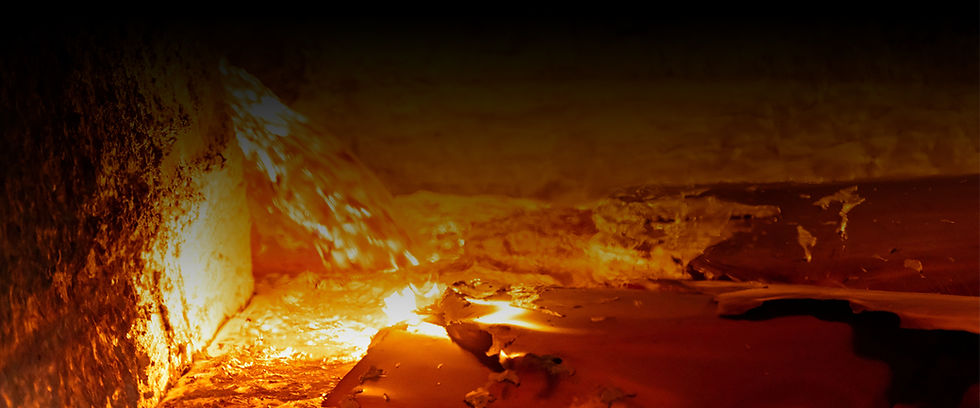
ALUMINIUM ALLOYS
Aluminium is a versatile metal renowned for its unique properties. It is a soft, non-magnetic, and ductile metal that offers a range of advantages, including low density and resistance to corrosion.
Besides its high strength-to-weight ratio and corrosion resistance, Aluminium exhibits excellent thermal and electrical conductivity. It also serves as a reflector of light and heat, is non-toxic, and boasts high recyclability.
Our Aluminium Alloys Range
We supply Aluminium Deoxidants in various forms and Ferro Aluminium in pyramids. Click the links below for further information.
Aluminium In Industry
Aluminium is often alloyed for various applications. Even when the Aluminium content exceeds 99% in an alloy, it is typically utilised as a pure metal when corrosion resistance and workability outweigh the need for strength or hardness.
Aluminium's recyclability is so effective, that there is no difference in quality between virgin and recycled Aluminium. However, the energy required to remelt and recycle Aluminium is only around 5% of what is needed to produce virgin material. As a result, approximately 60% of Aluminium alloy is recycled at the end of its lifecycle.
Uses Of Aluminium Alloys
The versatility of Aluminium makes it the most widely used non-ferrous metal. Despite its reactivity with Oxygen, which suggests limited usability, Aluminium behaves differently from Iron when it oxidises. Instead of flaking away like Iron Oxide (rust), the resulting Aluminium Oxide forms a protective barrier, shielding the metal from further decay.
Aluminium alloys have applications in various fields, from everyday items that surround us to specialised uses. It is commonly found in transportation vehicles (cars, aircraft, marine vessels, bicycles), packaging materials (foil, cans), construction components (windows, doors), and household items (cooking utensils, white goods, electronic casings).
Additionally, it is utilised in more specialised applications such as transmission lines, electronic wiring, and heat sinks.
Why Choose Westbrook Resources As Your Aluminium Alloys Supplier
Westbrook Resources has storage facilities located in the United Kingdom, Europe, South Africa and North America. This ideally locates us for the distribution of Aluminium across the globe.
Our mission is to remain a reliable long-term partner by ensuring:
-
Continuity of Supply
-
Consistent Quality
-
Competitive Pricing
-
Efficient Delivery Service
-
Incredible Service
As a leading Aluminium alloys supplier and distributor, Westbrook can ship and distribute Aluminium alloys around the globe. This grants us increased flexibility by utilising our global distribution network to reach international customers.
Westbrook Resources are ISO 9001 compliant, Authorised Economic Operator accredited, hold numerous REACH registrations both in the UK and the EU and have several Turkish KKDIK pre-registrations. We have fiscal representation in several countries to facilitate deliveries direct to your plant.
Contact Us
At Westbrook Resources, we are experienced in supplying Aluminum Alloys in various forms. Our Aluminium Deoxidants and Ferro Aluminium are available in pyramids or broken waffles.
Have any questions? Contact us today. Our team is ready to assist you.
Aluminium Alloy FAQs
What is the difference between Aluminium and Alumina?
Alumina is another name for the chemical compound Aluminium Oxide, which is produced from Bauxite. Around 90% of Alumina is used to smelt Aluminium metal but it also has uses in ceramics, abrasives, catalysts and absorbents. Alumuna is electrolytically reduced in an aluminium smelter in a highly energy intensive process and then remelted in a furnace to produce pure Aluminium.
Aside from our Aluminium alloys, we offer a wide range of metals, mineral and ferro alloy products.
Is Aluminium a scarce resource?
No, Aluminium is the most widespread metal on Earth but pure Aluminium does not occur in nature. The most common form of Aluminium found in nature is the mineral, Aluminium Sulphate but Bauxite is the primary raw material in Aluminium production, which is also a very common mineral. On average, 4-5 tonnes of Bauxite are required to produce 1 tonne of Aluminium. As Bauxite resources become more scarce, other minerals could be used to produce Aluminium. In addition, Aluminium is a highly recycled material and roughly 75% of the Aluminium ever produced is still in use.
Can Aluminium Alloys corrode?
Aluminium’s surface oxidises at once to form a thin oxide coating which is highly resistant to corrosion. However, it is not immune. Pitting corrosion can occur when localised damage to the protective oxide layer exposes the Aluminium to corrosive environments. It is also at risk of corrosion when exposed to highly acidic or alkaline conditions, elevated temperatures and salts.
For further information about how to safely handle and store Aluminium alloys, contact our team of specialists today. We are always happy to assist.


